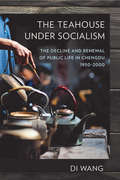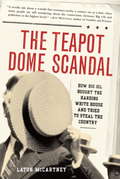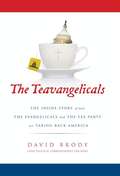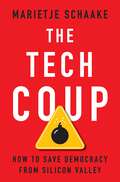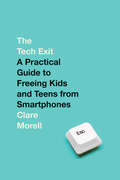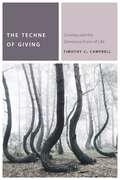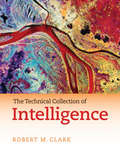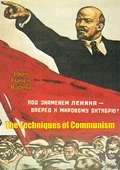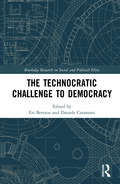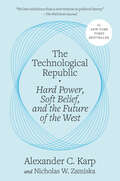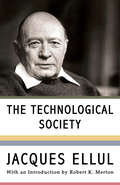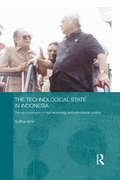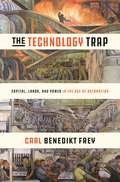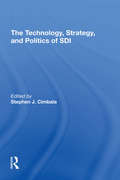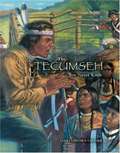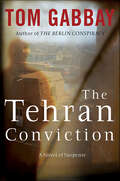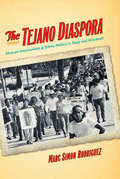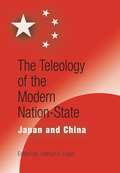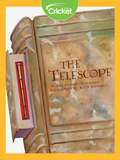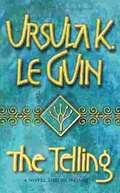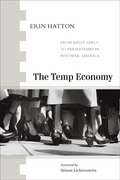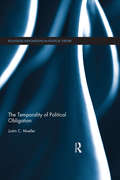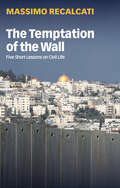- Table View
- List View
The Teahouse under Socialism: The Decline and Renewal of Public Life in Chengdu, 1950–2000
by Di WangTo understand a city fully, writes Di Wang, we must observe its most basic units of social life. In The Teahouse under Socialism, Wang does just that, arguing that the teahouses of Chengdu, the capital of Sichuan Province, are some of the most important public spaces—perfect sites for examining the social and economic activities of everyday Chinese.Wang looks at the transformation of these teahouses from private businesses to collective ownership and how state policy and the proprietors’ response to it changed the overall economic and social structure of the city. He uses this transformation to illuminate broader trends in China’s urban public life from 1950 through the end of the Cultural Revolution and into the post-Mao reform era. In doing so, The Teahouse under Socialism charts the fluctuations in fortune of this ancient cultural institution and analyzes how it survived, and even thrived, under bleak conditions.Throughout, Wang asks such questions as: Why and how did state power intervene in the operation of small businesses? How was "socialist entertainment" established in a local society? How did the well-known waves of political contestation and struggle in China change Chengdu’s teahouses and public life? In the end, Wang argues, the answers to such questions enhance our understanding of public life and political culture in the Communist state.
The Teapot Dome Scandal: How Big Oil Bought the Harding White House and Tried to Steal the Country
by Laton MccartneyMix hundreds of millions of dollars in petroleum reserves; rapacious oil barons and crooked politicians; under-the-table payoffs; murder, suicide, and blackmail; White House cronyism; and the excesses of the Jazz Age. The result: the granddaddy of all American political scandals, Teapot Dome.In The Teapot Dome Scandal, acclaimed author Laton McCartney tells the amazing, complex, and at times ribald story of how Big Oil handpicked Warren G. Harding, an obscure Ohio senator, to serve as our twenty-third president. Harding and his so-called "oil cabinet" made it possible for the oilmen to secure vast oil reserves that had been set aside for use by the U.S. Navy. In exchange, the oilmen paid off senior government officials, bribed newspaper publishers, and covered the GOP campaign debt.When news of the scandal finally emerged, the consequences were disastrous for the nation and for the principles in the plot to bilk the taxpayers: Harding's administration was hamstrung; Americans' confidence in their government plummeted; Secretary of the Interior Albert Fall was indicted, convicted, and incarcerated; and others implicated in the affair suffered similarly dire fates. Stonewalling by members of Harding's circle kept a lid on the story-witnesses developed "faulty" memories or fled the country, and important documents went missing-but contemporary records newly made available to McCartney reveal a shocking, revelatory picture of just how far-reaching the affair was, how high the stakes, and how powerful the conspirators. In giving us a gimlet-eyed but endlessly entertaining portrait of the men and women who made a tempest of Teapot Dome, Laton McCartney again displays his gift for faithfully rendering history with the narrative touch of an accomplished novelist.From the Hardcover edition.
The Teavangelicals: The Inside Story of How the Evangelicals and the Tea Party are Taking Back America
by David BrodyThe Teavangelicals is a one-of-a-kind book chock-full of original reporting from the 2012 presidential race with an up-close look at how evangelicals and the Tea Party are plotting strategy to reclaim America. In his trademark breezy, funny, and engaging style, David Brody takes you inside the blossoming Teavangelical movement and describes how it is having a major effect on today’s politics with an eye on dominating the political affairs of tomorrow. The author takes his niche for getting interviews and inside access with all the big-name political and evangelical newsmakers and now shares that exclusive access with readers. The author offers a rare, behind-the-scenes glimpse along the campaign trail within the three key factions working tirelessly to overcome President Obama and his political machine: evangelicals, the Tea Party and the GOP presidential contenders. Brody, embedded with leading Tea Party and evangelical groups, shares what he learned from private emails, memos, and conversations that shed light on campaign strategy and voter mobilization efforts. In addition, this book highlights Brody’s exclusive interviews, stories, and travels with all the 2012 GOP presidential candidates as they try to be the candidate that takes on President Obama and ultimately change the course of direction in America. The author travels to the key early Primary states of Iowa and South Carolina where Evangelicals will have a major say in who the GOP nominates for President. The author gives readers the inside scoop on the power of evangelical groups and how they’re making a difference early on in the process. Additionally, how will these GOP candidates appeal to evangelicals and how well will it work out? At the same time, the candidates are catering to the Tea Party crowd. We’ll go inside the living rooms of major Tea Party organizers to get inside access on the chatter. Are these presidential candidates passing the Tea Party “smell test”?
The Tech Coup: How to Save Democracy from Silicon Valley
by Marietje SchaakeAn insider offers a &“forceful critique...of Big Tech's steady erosion of democracy&” (The New Yorker) and describes what must be done to stop itOver the past decades, under the cover of &“innovation,&” technology companies have successfully resisted regulation and have even begun to seize power from governments themselves. Facial recognition firms track citizens for police surveillance. Cryptocurrency has wiped out the personal savings of millions and threatens the stability of the global financial system. Spyware companies sell digital intelligence tools to anyone who can afford them. This new reality—where unregulated technology has become a forceful instrument for autocrats around the world—is terrible news for democracies and citizens.In The Tech Coup, Marietje Schaake offers a behind-the-scenes account of how technology companies crept into nearly every corner of our lives and our governments. She takes us beyond the headlines to high-stakes meetings with human rights defenders, business leaders, computer scientists, and politicians to show how technologies—from social media to artificial intelligence—have gone from being heralded as utopian to undermining the pillars of our democracies. To reverse this existential power imbalance, Schaake outlines game-changing solutions to empower elected officials and citizens alike. Democratic leaders can—and must—resist the influence of corporate lobbying and reinvent themselves as dynamic, flexible guardians of our digital world.Drawing on her experiences in the halls of the European Parliament and among Silicon Valley insiders, Schaake offers a frightening look at our modern tech-obsessed world—and a clear-eyed view of how democracies can build a better future before it is too late.
The Tech Exit: A Practical Guide to Freeing Kids and Teens from Smartphones
by Clare MorellA road map to free your kids from the harms of digital technology and to recover the beauty, wonder, and true purpose of childhood—by a leading tech policy expert&“We know smartphones can be harmful to kids and teens, but what can we do about it? In this indispensable guide, Clare Morell documents the solutions that actually work.&”—Cal Newport, author of Slow Productivity and Digital MinimalismIt&’s no secret that addictive digital technologies like smartphones and social media apps are harming a generation of kids socially, mentally, and even physically. But a workable solution seems elusive. After all, don&’t kids need phones, and won&’t they be vulnerable or socially isolated without tech?Clare Morell, fellow at the Ethics and Public Policy Center and director of its Technology and Human Flourishing Project, argues that the answer is no. She exposes the lies parents have been sold about managing the dangers of tech through parental controls and screen-time limits, and demonstrates that another way is possible—even if your children are already using smartphones or social media.The Tech Exit maps a doable pathway to freedom from digital technology for families, local communities, and society. Drawing on dozens of interviews with experts and with families who have gone tech-free, as well as Morell&’s own work as a policy expert, The Tech Exit shows how digital technology is anything but necessary for children to live happy, healthy, and socially full lives.The Tech Exit is essential reading for any parent who has felt stuck between an awareness of the dangers of digital technology for kids and the feeling that tech is necessary and inevitable. Clare Morell&’s message is simple and compelling: You and your family can be free. The life you want for your children is within reach.
The Techne of Giving: Cinema and the Generous Form of Life (Commonalities)
by Timothy C. CampbellOver the last five years, corporations and individuals have given more money, more often, to charitable organizations than ever before. What could possibly be the downside to inhabiting a golden age of gift-giving? That question lies at the heart of Timothy Campbell’s account of contemporary giving and its social forms. In a milieu where gift-giving dominates, nearly everything given and received becomes the subject of a calculus—gifts from God, from benefactors, from those who have. Is there another way to conceive of generosity? What would giving and receiving without gifts look like?A lucid and imaginative intervention in both European philosophy and film theory, The Techne of Giving investigates how we hold the objects of daily life—indeed, how we hold ourselves—in relation to neoliberal forms of gift-giving. Even as instrumentalism permeates giving, Campbell articulates a resistant techne locatable in forms of generosity that fail to coincide with biopower’s assertion that the only gifts that count are those given and received. Moving between visual studies, Winnicottian psychoanalysis, Foucauldian biopower, and apparatus theory, Campbell makes a case for how to give and receive without giving gifts. In the conversation between political philosophy and classic Italian films by Visconti, Rossellini, and Antonioni, the potential emerges of a generous form of life that can cross between the visible and invisible, the fated and the free.
The Technical Collection of Intelligence
by Robert M. ClarkTechnical collection represents the largest asymmetric edge that technologically advanced countries such as the United States and its allies have in the intelligence business. Intelligence veteran Robert M. Clark’s new book offers a succinct, logically organized, and well written overview of technical collection, explained at a non technical level for those new to the field. Filling a void in the literature, The Technical Collection of Intelligence is the only book that comprehensively examines the collection, processing, and exploitation of non-literal intelligence information, including laser, acoustic, and infrared signals; non-imaging optical intelligence sources; and radar tracking and measurement of aerospace vehicles. A compelling final chapter addresses the substantial challenges that come with managing technical collection. A stunning full-color interior design features high quality graphics while a handy “tabs” feature keeps content at the ready. A useful list of recommended books and reports, a glossary of terms, and a list of acronyms make this guide a go-to resource. Technical Collection will prove invaluable to all source analysts, managers of technical collection, customers of intelligence, and recruiters for the intelligence community.
The Techniques of Communism
by Louis Francis BudenzIt is this study of the techniques of Communism on any large scale which has been lacking, although there is no subject more important for the United States. An increasing number of community leaders have become aware of this defect and have sought to remedy it through courses on the techniques of Communism. Certain colleges and universities have introduced such courses into the curriculum. The National Education Association, at its 1952 convention, recommended moves in the same direction by suggesting the study of Communism in the schools. The Senate Sub-Committee on Internal Security, in its July 1953 report on education, strongly recommends the necessity of classes for teachers and students in high schools and colleges, conducted by those effective in combating Communism.An adequate textbook will make possible a dynamic study of Communism in our schools and in community groups. It will give an impetus to the wider introduction of this subject into colleges and civic organizations which have lacked the material for organizing such courses. The fact that a handbook or textbook of this character was not prepared in the past is one of the chief explanations for the slow progress so far.The present book, designed to answer this need, is an analytical and critical study of Communism. It deals with Communist ideology, strategy, and ‘movement’ as presented by the Marxist-Leninist classics themselves and by current Communist documents and directives. It examines the relationship of the directives given by the Kremlin to the basic works of Marx, Engels, Lenin, and Stalin. It considers these books and documents as the Communist himself studies and uses them. It analyzes Communist activities as the Communist is instructed to carry them out.This is the competent manner in which the techniques of Communism can be mastered in order to defeat them.
The Technocratic Challenge to Democracy (Routledge Research on Social and Political Elites)
by Daniele Caramani Eri BertsouThis book represents the first comprehensive study of how technocracy currently challenges representative democracy and asks how technocratic politics undermines democratic legitimacy. How strong is its challenge to democratic institutions? The book offers a solid theory and conceptualization of technocratic politics and the technocratic challenge is analyzed empirically at all levels of the national and supra-national institutions and actors, such as cabinets, parties, the EU, independent bodies, central banks and direct democratic campaigns in a comparative and policy perspective. It takes an in-depth analysis addressing elitism, meritocracy, de-politicization, efficiency, neutrality, reliance on science and distrust toward party politics and ideologies, and their impact when pitched against democratic responsiveness, accountability, citizens' input and pluralist competition. In the current crisis of democracy, this book assesses the effects of the technocratic critique against representative institutions, which are perceived to be unable to deal with complex and global problems. It analyzes demands for competent and responsible policy making in combination with the simultaneous populist resistance to experts. The book will be of key interest to scholars and students of comparative politics, political theory, policy analysis, multi-level governance as well as practitioners working in bureaucracies, media, think-tanks and policy making.
The Technological Republic: Hard Power, Soft Belief, and the Future of the West
by Alexander C. Karp Nicholas W. ZamiskaFrom the Palantir co-founder, one of tech’s boldest thinkers and The Economist’s “best CEO of 2024,” and his deputy, a sweeping indictment of the West’s culture of complacency, arguing that timid leadership, intellectual fragility, and an unambitious view of technology’s potential in Silicon Valley have made the U.S. vulnerable in an era of mounting global threats. <p> “Fascinating and important.”—Walter Isaacson, #1 New York Times bestselling author of Elon Musk <p> ONE OF FINANCIAL TIMES’ MOST ANTICIPATED BOOKS OF THE YEAR <p> Silicon Valley has lost its way. Our most brilliant engineering minds once collaborated with government to advance world-changing technologies. Their efforts secured the West’s dominant place in the geopolitical order. But that relationship has now eroded, with perilous repercussions. Today, the market rewards shallow engagement with the potential of technology. Engineers and founders build photo-sharing apps and marketing algorithms, unwittingly becoming vessels for the ambitions of others. This complacency has spread into academia, politics, and the boardroom. The result? An entire generation for whom the narrow-minded pursuit of the demands of a late capitalist economy has become their calling. <p> In this groundbreaking treatise, Palantir co-founder and CEO Alexander C. Karp and Nicholas W. Zamiska offer a searing critique of our collective abandonment of ambition, arguing that in order for the U.S. and its allies to retain their global edge—and preserve the freedoms we take for granted—the software industry must renew its commitment to addressing our most urgent challenges, including the new arms race of artificial intelligence. The government, in turn, must embrace the most effective features of the engineering mindset that has propelled Silicon Valley’s success. Above all, our leaders must reject intellectual fragility and preserve space for ideological confrontation. A willingness to risk the disapproval of the crowd, Karp and Zamiska contend, has everything to do with technological and economic outperformance. At once iconoclastic and rigorous, this book will also lift the veil on Palantir and its broader political project from the inside, offering a passionate call for the West to wake up to our new reality. <b>New York Times Bestseller</b>
The Technological Society
by Jacques EllulAs insightful and wise today as it was when originally published in 1954, Jacques Ellul's The Technological Society has become a classic in its field, laying the groundwork for all other studies of technology and society that have followed. Ellul offers a penetrating analysis of our technological civilization, showing how technology—which began innocuously enough as a servant of humankind—threatens to overthrow humanity itself in its ongoing creation of an environment that meets its own ends. No conversation about the dangers of technology and its unavoidable effects on society can begin without a careful reading of this book. "A magnificent book . . . He goes through one human activity after another and shows how it has been technicized, rendered efficient, and diminished in the process.&”—Harper's &“One of the most important books of the second half of the twentieth-century. In it, Jacques Ellul convincingly demonstrates that technology, which we continue to conceptualize as the servant of man, will overthrow everything that prevents the internal logic of its development, including humanity itself—unless we take necessary steps to move human society out of the environment that 'technique' is creating to meet its own needs.&”—The Nation &“A description of the way in which technology has become completely autonomous and is in the process of taking over the traditional values of every society without exception, subverting and suppressing these values to produce at last a monolithic world culture in which all non-technological difference and variety are mere appearance.&”—Los Angeles Free Press
The Technological State in Indonesia: The Co-constitution of High Technology and Authoritarian Politics (Routledge Contemporary Southeast Asia Series)
by Sulfikar AmirUsing a historical sociology approach, this book illustrates the formation of the technological state in Indonesia during the New Order period (1966-1998). It explores the nexus between power, high technology, development, and authoritarianism situated in the Southeast Asian context. The book discusses how the New Order regime shifted from the developmental state to the technological state, which was characterized by desire for technological supremacy. The process resulted in the establishment of a host of technological institutions and the undertaking of large-scale high-tech programs. Shedding light on the political dimension of socio-technological transformation, this book looks at the relationship between authoritarian politics and high technology development, and examines how effectively technology serves to sustain legitimacy of an authoritarian power. It explores into multiple features of the Indonesian technological state, covering the ideology of development, the politics of technocracy, the institutional structure, and the material and symbolic embodiments of high technology, and goes on to discuss the impact of globalization on the technological state. The book is an important contribution to studies on Southeast Asian Politics, Development, and Science, Technology, and Society (STS).
The Technology Trap: Capital, Labor, and Power in the Age of Automation
by Carl Benedikt FreyHow the history of technological revolutions can help us better understand economic and political polarization in the age of automation From the Industrial Revolution to the age of artificial intelligence, The Technology Trap takes a sweeping look at the history of technological progress and how it has radically shifted the distribution of economic and political power among society’s members. As Carl Benedikt Frey shows, the Industrial Revolution created unprecedented wealth and prosperity over the long run, but the immediate consequences of mechanization were devastating for large swaths of the population. Middle-income jobs withered, wages stagnated, the labor share of income fell, profits surged, and economic inequality skyrocketed. These trends, Frey documents, broadly mirror those in our current age of automation, which began with the Computer Revolution.Just as the Industrial Revolution eventually brought about extraordinary benefits for society, artificial intelligence systems have the potential to do the same. But Frey argues that this depends on how the short term is managed. In the nineteenth century, workers violently expressed their concerns over machines taking their jobs. The Luddite uprisings joined a long wave of machinery riots that swept across Europe and China. Today’s despairing middle class has not resorted to physical force, but their frustration has led to rising populism and the increasing fragmentation of society. As middle-class jobs continue to come under pressure, there’s no assurance that positive attitudes to technology will persist.The Industrial Revolution was a defining moment in history, but few grasped its enormous consequences at the time. The Technology Trap demonstrates that in the midst of another technological revolution, the lessons of the past can help us to more effectively face the present.
The Technology, Strategy, And Politics Of Sdi
by Stephen J CimbalaThe Strategic Defense Initiative (SDI) to develop a ballistic missile defense (BMD) system has both short-range and long-range risks as well as potential benefits. For the most part, however, strategic, technological, and political issues relevant to SDI have been analyzed in isolation from one another. This book provides a more inclusive framework for assessing the possible development and deployment of a BMD system by the United States or the Soviet Union. Contributors discuss the risks for arms race stability, probable reactions of the Soviet Union to any U.S. space-based defense system, and implications for the stability of extended deterrence commitments to NATO European allies. They also evaluate Soviet research and development programs in missile defense that must be considered in any extrapolation of the requirements for U.S. deterrence in the next several decades.
The Tecumseh You Never Knew
by James Lincoln CollierTecumseh was fearless in battle. And like many, he was determined to save his land and his people from the American settlers. But Tecumseh, more than any of the others, worked out a realistic plan for keeping the settlers out of Indian lands, and he came closer to doing it than any other.
The Tehran Conviction: A Novel of Suspense
by Tom Gabbay“Told against the background of a real-life CIA coup, The Tehran Conviction mixes historical fact with vivid storytelling in ways that will delight readers of both.”—Stephen Kinzer, New York Times Bestselling author of All the Shah’s MenBestselling thriller writer Jack Higgins calls Tom Gabbay, “John le Carré with a witty ironic edge.” In The Tehran Conviction, the acclaimed author of The Berlin Conspiracy and The Lisbon Crossing sends Agent Jack Teller to Iran during two equally volatile times in the nation’s recent history: on the eve of a CIA-sponsored coup in1953, and in 1979, the year of the infamous Islamic revolution. Denver’s Rocky Mountain News advises you to, “add [Gabbay’s] name to the must-read list of thriller writers.” Read The Tehran Conviction and see why.
The Tejano Diaspora
by Marc Simon RodriguezEach spring during the 1960s and 1970s, a quarter million farm workers left Texas to travel across the nation, from the Midwest to California, to harvest America's agricultural products. During this migration of people, labor, and ideas, Tejanos established settlements in nearly all the places they traveled to for work, influencing concepts of Mexican Americanism in Texas, California, Wisconsin, Michigan, and elsewhere. InThe Tejano Diaspora, Marc Simon Rodriguez examines how Chicano political and social movements developed at both ends of the migratory labor network that flowed between Crystal City, Texas, and Wisconsin during this period. Rodriguez argues that translocal Mexican American activism gained ground as young people, activists, and politicians united across the migrant stream. Crystal City, well known as a flash point of 1960s-era Mexican Americanism, was a classic migrant sending community, with over 80 percent of the population migrating each year in pursuit of farm work. Wisconsin, which had a long tradition of progressive labor politics, provided a testing ground for activism and ideas for young movement leaders. By providing a view of the Chicano movement beyond the Southwest, Rodriguez reveals an emergent ethnic identity, discovers an overlooked youth movement, and interrogates the meanings of American citizenship.
The Telegraph India [Mon, 27 Nov 2017]
by R. RajgopalArticles in this issue: Home India Calcutta World Opinion Business Sports West Bengal North East Jharkhand Bihar Odisha Entertainment Lifestyle Science Technology Travel Health Auto
The Teleology of the Modern Nation-State: Japan and China (Encounters with Asia)
by Joshua A. FogelJapan and China did not begin to emerge as unified political entities until the nineteenth century. Yet scholars and politicians persistently refer to "Japan" and "China" in discussions of earlier periods, as if the modern nation-state had long been established in these regions. Joshua Fogel here brings together essays by eight renowned East Asian scholars to demonstrate why this oversight distorts our historical analysis and understanding of both countries. The nation-states of Japan and China developed much later and, indeed, far less uniformly than usually conveyed in popular myth and political culture. Moreover, the false depiction of an earlier national identity not only alters the factual record; it serves the contemporary engines of nationalist mythology and propaganda.This interdisciplinary volume asks deceptively simple questions: When did "Japan" and "China" become Japan and China? When and why do inhabitants begin to define their identity and interests nationally rather than locally? Identifying the role of mitigating factors from disease and travel abroad to the subtleties of political language and aesthetic sensibility, the answers provided in these diverse and insightful essays are appropriately complex. By setting aside Western notions of the nation-state, the contributors approach each region on its own terms, while the thematic organization of the book provides a unique lens through which to view the challenges common to understanding both Japan and China. This highly readable collection will be important to scholars both inside and beyond the field of East Asian studies.
The Telescope
by Lisa Harries SchumannKing Fensgar spends the long winter days wandering his castle and imagining that everyone else in the kingdom is as bored as he is. A special book helps him realize he doesn't have the slightest idea of what is happening in his own kingdom.
The Telling
by Ursula K. Le GuinThe long-awaited new novel in the superb Hainish cycle'Le Guin is a writer of phenomenal power' OBSERVER'Her worlds have a magic sheen . . . She moulds them into dimensions we can only just sense. She is unique. She is legend' THE TIMESThere have been eighty requests to send an Observer into the hinterlands of the planet Aka to study the natives. Much to everyone's surprise, the eighty-first request is granted, and Observer Sutty is sent upriver to Okzat-Ozkat, a small city in the foothills of Rangma, to talk to the remnants in hiding of a cult practising a banned religion. On Aka, everything that was written in the old scripts has been destroyed; modern aural literature is all written to Corporation specifications. The Corporation expects Sutty to report back so the non-standardised folk stories and songs can be wiped out and the people 're-educated'. But Sutty herself is in for an education she never imagined.
The Temp Economy: From Kelly Girls to Permatemps in Postwar America
by Erin HattonEveryone knows that work in America is not what it used to be. Layoffs, outsourcing, contingent work, disappearing career ladders—these are the new workplace realities for an increasing number of people. But why? In The Temp Economy, Erin Hatton takes one of the best-known icons of the new economy—the temp industry—and finds that it is more than just a symbol of this degradation of work. The temp industry itself played an active role in this decline—and not just for temps. Industry leaders started by inventing the "Kelly Girl," exploiting 1950s gender stereotypes to justify low wages, minimal benefits, and chronic job insecurity. But they did not stop with Kelly Girls. From selling human"business machines" in the 1970s to "permatemps" in the 1990s, the temp industry relentlessly portrayed workers as profit-busting liabilities that hurt companies' bottom lines even in boom times. These campaigns not only legitimized the widespread use of temps, they also laid the cultural groundwork for a new corporate ethos of ruthless cost cutting and mass layoffs. Succinct, highly readable, and drawn from a vast historical record of industry documents, The Temp Economy is a one-stop resource for anyone interested in the temp industry or the degradation of work in postwar America.
The Temporality of Political Obligation (Routledge Innovations in Political Theory)
by Justin Chandler MuellerThe Temporality of Political Obligation offers a critique and reconceptualization of the ways in which our political obligations – what we owe to political authorities and communities, and the reasons why we ought to obey their rules – have been traditionally conceptualized, justified, and contested. Drawing from theories of time and temporality, Justin Mueller demonstrates some of the unacknowledged assumptions and theoretical blind spots shared among these ostensibly opposed positions, and the problems and contradictions that this neglect of time poses. Enriching the literature on the philosophers Henri Bergson and Gilles Deleuze, Mueller demonstrates how their theoretical frameworks on time can be used to analyze a political problem that is usually confined to the concerns of normative liberal democratic theory. Politically, this book provides readers with the means to better identify and analyze the diverse temporalities they encounter in everyday life, and better understand their experiences of them. A welcomed and timely read which will be of interest to scholars involved in recent efforts to engage with the social and political dimensions and consequences of time and temporality.
The Temptation of Elizabeth Tudor: Elizabeth I, Thomas Seymour, and the Making of a Virgin Queen (Great Lives Ser.)
by Elizabeth NortonA power-hungry and charming courtier. An impressionable and trusting princess. The Tudor court in the wake of Henry VIII’s death had never been more perilous for the young Elizabeth, where rumors had the power to determine her fate England, late 1547. King Henry VIII Is dead. His fourteen-year-old daughter Elizabeth is living with the king’s widow, Catherine Parr, and her new husband, Thomas Seymour. Seymour is the brother of Henry VIII’s third wife, the late Jane Seymour, who was the mother to the now-ailing boy King. Ambitious and dangerous, Seymour begins and overt flirtation with Elizabeth that ends with Catherine sending her away. When Catherine dies a year later and Seymour is arrested for treason soon after, a scandal explodes. Alone and in dreadful danger, Elizabeth is threatened by supporters of her half-sister, Mary, who wishes to see England return to Catholicism. She is also closely questioned by the king’s regency council due to her place in the line of succession. Was she still a virgin? Was there a child? Had she promised to marry Seymour? Under pressure, Elizabeth shows the shrewdness and spirit she would later be famous for. She survives the scandal, but Thomas Seymour is not so lucky. The “Seymour Scandal” led Elizabeth and her advisers to create of the persona of the Virgin Queen. On hearing of Seymour’s beheading, Elizabeth observed, “This day died a man of much wit, and very little judgment.” His fate remained with her. She would never allow her heart to rule her head again.
The Temptation of the Wall: Five Short Lessons on Civil Life
by Massimo RecalcatiModern social and political life is characterized not only by a passion for freedom and a desire for human contact, but also by the urge to shut down, to refuse freedom and the responsibility that goes with it, to barter it away in return for our security: this is the temptation of the wall, a temptation with which every modern society has to come to terms. Drawing on his experience as a psychoanalyst, Recalcati shows that the temptation of the wall is rooted in a deep psychological inclination: human beings have always drawn up borders and rejected the risks associated with being open to the outside world. But when these borders are turned into walls, they can only result in an impoverishment of the value of exchange and the loss of the dynamic plurality of a life shared with others.
